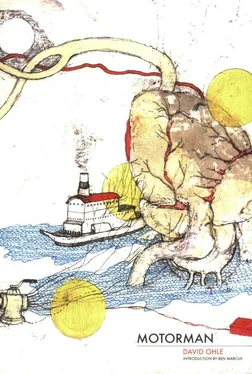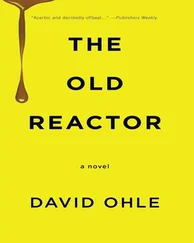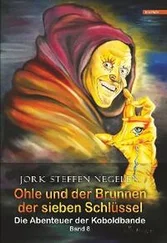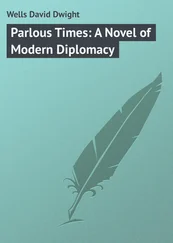Enough of this, Moldenke. I'm off to the greenhouse.
See you in the city.
As always,
Burnheart
25
Burnheart called:
"Moldenke?"
"Burnheart?"
"Yes, speaking. Dink? One question: why hasn't he thought of unplugging the phone?"
"The phone? The telephone? My telephone?"
"Right. Why not?"
"I don't know. I hadn't thought of it either."
"Wrong, Dink. He's thought of it. He's considered it. A few years back I might have said he was capable of oversights, but not now. The most we can hope for now is chance and accident. Are you with me? Together, Dink. Me and you. We'll roll him like a pill in our fingers. Say, Dink? Have you noted my high mood?"
"Yes. You seem up. Upper than you were the last I saw you."
"Naturally. I'm back in the country. One sniff of the peat and I'm mysteriously restored. Energy surges again. Now and again we toss a bucket of crabs out to the hogs. The hogs live among the pilings under the house. You've never seen this place, have you? That will have to be fixed. The country is almost alive with occasional activity. The other day I was sitting on a gum stump watching an unusual sort of insect crawl up a dead brush plant. A very colorful bug, stripes, crescents, long, fern-like antennae. You know the sort, Moldenke?"
"Sure I know. The decorator bug.''
"Yes, of course. The decorator bug. When he reached the top of a branch he attached himself by the hinder legs and began unfurling himself. Membranes fanned out, wings turned and adjusted themselves. And there he was, a flower. Later, other decorator bugs came along and settled in place — buds, leaves, even a mock wasp. It was a natural gas, Moldenke. You'd never see that in the city, would you?"
"I guess not."
"Then come to the country. Be with me and Eagleman."
"Bunce says no moving. How would I get there?"
"Did I say we were friends?"
"Sure, but what if — "
"We'll have him picking his nose in the cold room. I'm convinced he has flaws. The only weapon he has is you, Moldenke. Follow what I say?"
"Yeah, but what should I do?"
"Test him."
"Well, I already tried one test and it didn't — "
"Never mind, I'll design the tests. All you have to do is execute them. Eagleman is with us. Nobody can cipher better than Eagleman. He'll carry us through this affair even if you don't. Moldenke, place yourself at our disposal. Will you do that? Remember who installed your hearts? I've held your old heart in my fingers. How close can two people get? You've already trusted me with your heart. How about a little surrender, Dink? Give us yourself."
"Sure, why not? When do you want me? Will you come and get me?"
"No."
"Can I drive out in my k-ram — "
"No. No. Wait awhile. I'll think about it, talk to Eagleman. I'll call you back tomorrow with a test. We'll spring a test on him tomorrow. Would you like to say anything?"
"No. . Except one thing. It may not be important."
"Everything is. What is it?"
"I haven't flushed the water dump in more than a week."
"Why not?"
"There hasn't been a need to."
"You're being oblique, Moldenke. Does that mean you haven't taken a dump in that long a time?"
"Yes. That long."
"That's a long time, Dink. In a day or two you'll be coughing it up. Not good for the hearts. A constipated system is a threat to the flow. Lie on the left side and press the abdomen. Have an old fashioned enema. We can't be running subtle tests with full intestines. Tell me, are you drinking liquids?"
"No. I don't have any. Somebody turned off the water, too. Probably Bunce."
"Tell me, are you passing gas?"
"Seldom. A cold sputter or two every other day."
"You've got the dry poots. Get on it. I'll ring you tomorrow. I'll have a test ready. Have a fair day."
26
In the morning two suns came up, brightening the room, yellowing the walls. He could see. He stood up and fell forward on elbows and a knee. Someone with a hammer could have driven a nail in his back. His feelings were gone. He was stung. He would have tried to move his legs had he been able even to imagine them. He thought of Burnheart. He imagined Burnheart. He pulled himself along the rug and up the bedside, turning his face to the lookout, to the suns. He sat on the bed, opened his shirts, gave his hairless chest to the light. He pressed the abdomen, formed fists and beat pain into his legs. A rush of blood, circulation, a stirring of deep nerves, feeling.
A greenbird flew to the lip of the lookout, grappled for footing, stunned, flapping off feathers, fell backward, down, streetward.
A city chicken cockled.
He would keep busy. He would find his lighter, the flints, the bottle of k-fuel. He would drag his kitty-file closer to the chair. He would exercise. He would write Burnheart a letter. Generally, he would move. He wouldn't remain seated any longer.
He sat on the water dump and wrote:
Dear Burny,
I'm not sure you can help me out of this unless you know me better than you do. How well do you actually know me? You sometimes refer to me as Dink, or Dinky, my school name, which is a nice, familiar thing to do. But what does it amount to when you consider all the other things about me you don't know? I realize it seems insignificant. But it only seems that way. It really isn't. It is. It is significant. You can be assured that Bunce knows more than my school name. Burnheart, you should be more aware of me. You should know every lonely detail, everything, the whole Moldenke. For example: what did I do when I wandered away from the gauze mill? Did I take a job shrimping? If not, why so? Do you know that? You should. Bunce does. He could account for every moment. He has tapes, and I wouldn't be surprised if he also had films. Burnheart, please don't take this letter as an attempt at criticism, which is the most distant thing from my mind these days. No, it isn't that at all. It must be something else. Unfortunately, I don't know what. I enjoyed seeing you on your trip to the city and I look forward to being with you and Eagleman in the country. I've kept a picture of you on the wall. I've always looked up to you. If you ever came to me and said, "Rub something," I'd rub it without a second thought. I've copied your signature too many times. I've read the letters thin. You send me your throwaway coats and I manage to need them. I consider it an honor to wear them. How many of your test tubes have I washed? Ten thousand? How many solutions have I cooked on your k-flame? I've used you as a laxative and a lubricant both. Still, I see you as a stranger. Burnheart, help me. I'm getting along badly. Send me a woman. I need a woman. This morning the last scab peeled off the crank. I'm ready; although I'm afraid I have no feeling.
Yours,
I surrender,
Moldenke
He balled the letter and threw it in the water dump.
The suns had gone above the building. The room dimmed. Had there been water he would have bathed. He opened the spigot, testing, got sour air and pipe vibes. He wouldn't bathe and go to bed. He hadn't dumped.
He closed the dead refrigerator door. It opened again, back on its hinges. He had startled something. It flew past his shoulder, tipping his ear, fluttering into the bed springs.
He would pass time reading Burnheart letters. He found the lighter, loaded in a new flint, filled the tank with k-fuel, sparked it, and read by its light.
Dear Moldenke,
You remind me of the tripodero. You know the tripodero? A small creature of the Newer England woods? I'm not certain whether it has met extinction or not as yet. But that doesn't matter. We have records of him, specimens. He'd race along the hedgerows, churning up the turf, always sensitive to danger on the other side. If he ever suspected it, why, he'd rise up on those three telescoping legs of his and have a look. A marvelous mammal, the tripodero. I wonder whether he's still alive?
Читать дальше












